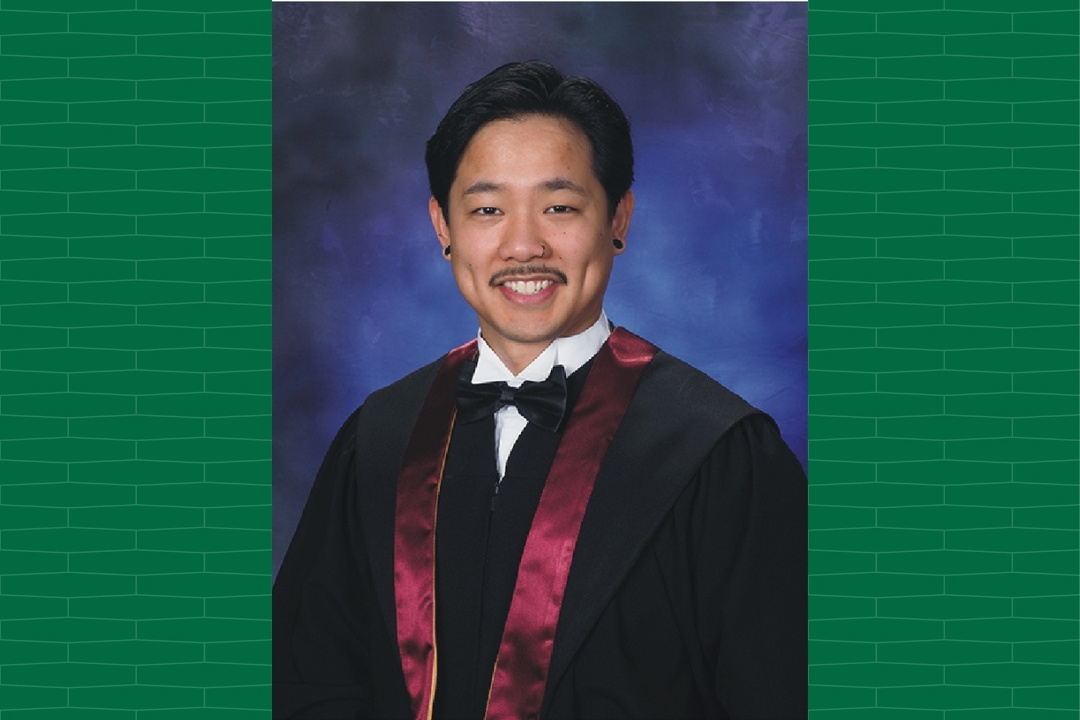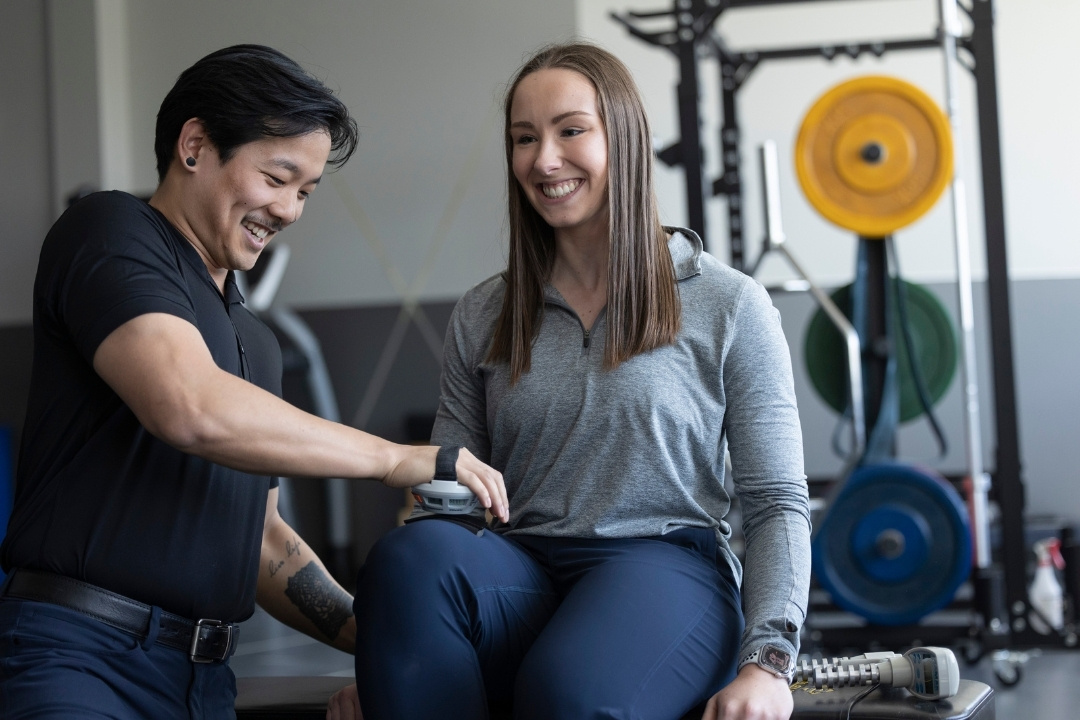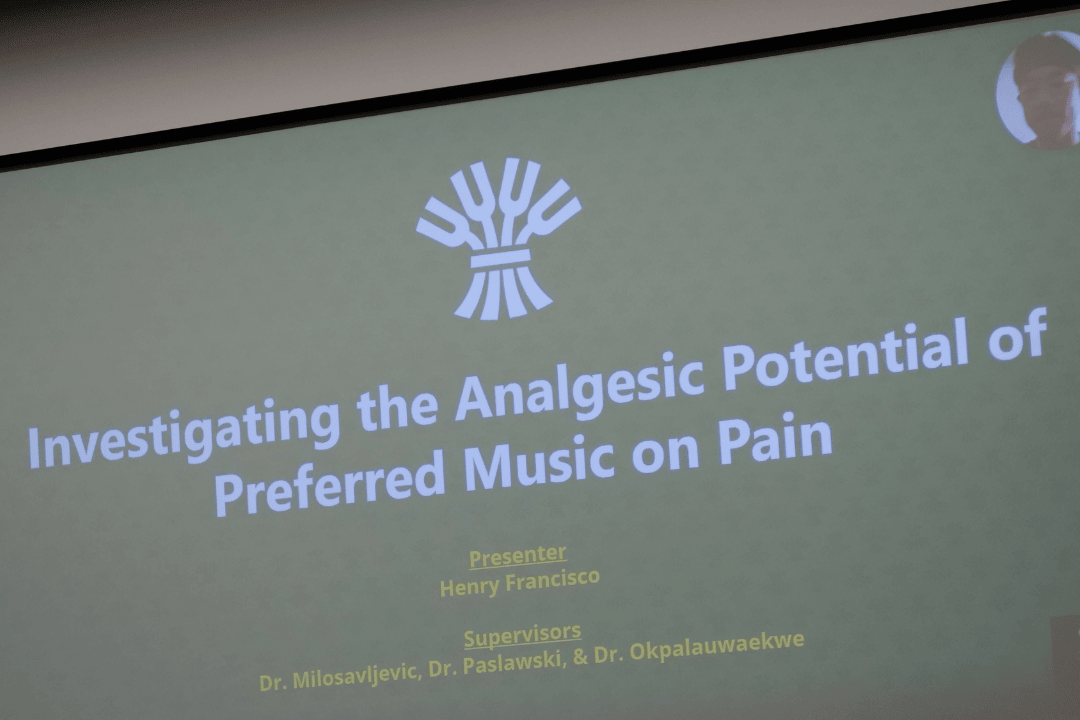
2025 - Year of milestones for physical therapy graduate
After completing the Master of Physical Therapy (MPT) program in December 2024, Henry Francisco started his career as a physical therapist at St. Paul's Hospital in Saskatoon with the inpatient acute care team but that is not the only big change for this graduate so far in 2025.
By Colby McClelland
Henry Francisco (MPT'24) was born and raised in Saskatoon, Saskatchewan. He completed his Bachelor of Science (BSc.) in Kinesiology in 2016 and decided to obtain a diploma in Power Engineering. After receiving his diploma, he worked with the Saskatchewan Health Authority (SHA) at multiple facilities including Royal University Hospital, Jim Pattison's Childrens Hospital, and Parkridge Centre in Saskatoon. After several years working in health-care, Henry was influenced by the impact physical therapists had on their patients which lead him to apply to the Master of Physical Therapy (MPT) program in 2021.
He started the MPT program in 2022. During his time in the program, Henry was very involved with student leadership including co-leading the Physical Therapy Students' Society (PTSS). He also completed a research project analyzing the effects music has on patients' pain tolerance. He completed the program requirements in December 2024 and is convocating on June 5, 2025.
After graduation, Henry went back to his roots continuing his career in health-care, only this time as a physical therapist with the SHA. Starting a new career was a huge milestone achieved in 2025, but Henry did not stop there. On May 20, Henry and his wife welcomed their first child and five days later moved into their first home as a family of three.
It has been a big year for Henry and his family, and we caught up with him to ask a few questions about his time as a MPT student, how his career is going so far, and what advice he has for students interested in pursuing a career in physical therapy.
What inspired you to pursue a career in Physical Therapy?
During my time with the Saskatchewan Health Authority, I witnessed many physical therapists working with patients. Patients shared with me how paramount physical therapists have been in their recovery. One patient in particular told me how their physical therapist made them feel human again. Before, when I thought of physical therapy, I thought of maximizing performance, optimizing strength/conditioning, but that patient's testimony made me understand that there's an entire other side to the profession where individuals may be trying to get back to their regular, daily activities. The interaction with that patient stuck with me and in that moment I knew I wanted to be a physical therapist.
Were there any challenges you had to overcome during your time at USask?
Balancing school and my personal life. The program is a quick but demanding two years. That being said, I wanted to be fully present and give my all to each facet of my life. That required me to say no to the smaller things and yes to more important things in both worlds. It was tough at first, but with a good support system it was possible to flourish.

As a new graduate, how has the transition from student to physical therapist been? How has the MPT program prepared you for starting your career?
Excellent. The culture and mentorship my workplace provides has made the transition from student to practitioner seamless. At St. Paul's Hospital there have been many opportunities for me to expand my physical therapy toolbox and with each opportunity, my mentors have provided the support, encouragement, and guidance for me to feel confident with each new skill.
The MPT program at the University of Saskatchewan has largely prepared me in three domains: knowledge, clinical experience, and interpersonal skills. The MPT program did a wonderful job of teaching and evaluating me on the hard-and-fast physical therapy concepts/skills which I would inevitably face in the clinical setting and be required to draw from. I also had ample exposure to various clinical placements which would eventually prepare me to be adaptable to new settings, diagnoses, and populations. Finally, both of the previous domains have allowed me to continually refine my communication skills between patients, families, and colleagues.
What advice would you give to students looking to become a physical therapist and applying for the MPT program?
If you have the slightest inkling of becoming a physical therapist, get in touch with one! I was fortunate enough to shadow various physical therapists before being admitted to the program and each practitioner was more than happy to accommodate me. This helped develop my desire to pursue physical therapy as a career path.
In terms of applying for the MPT program, don't forget about the non-academic opportunities. There are many ways for you to get involved as a physical therapy student both within the school and outside of it. The Physical Therapy Student Society (PTSS) is a great place to start along with SWITCH (Student Wellness Initiative Toward Community Health), sport PT volunteer work, student research projects, social events, etc. Being an excellent practitioner is not limited to how much you know or how skilled you are, it includes your ability to make connections, know your community, and have heart for what you do.
What is one thing you love about being a physical therapist?
The versatility. I'm still an entry-level physical therapist but what I've heard from many of my colleagues who are much more experienced is that you are never limited in what kind of work you can do. If you're interested musculoskeletal conditions, you can pursue that. If you find out you enjoy neurological work in the middle of your career, you can pursue that. If, at the end of your career, you decide to try acute cardiorespiratory physical therapy, you can most definitely pursue that. I look forward to continuing to grow my career and become the best physical therapist I can for my family, patients and the community.
